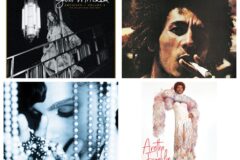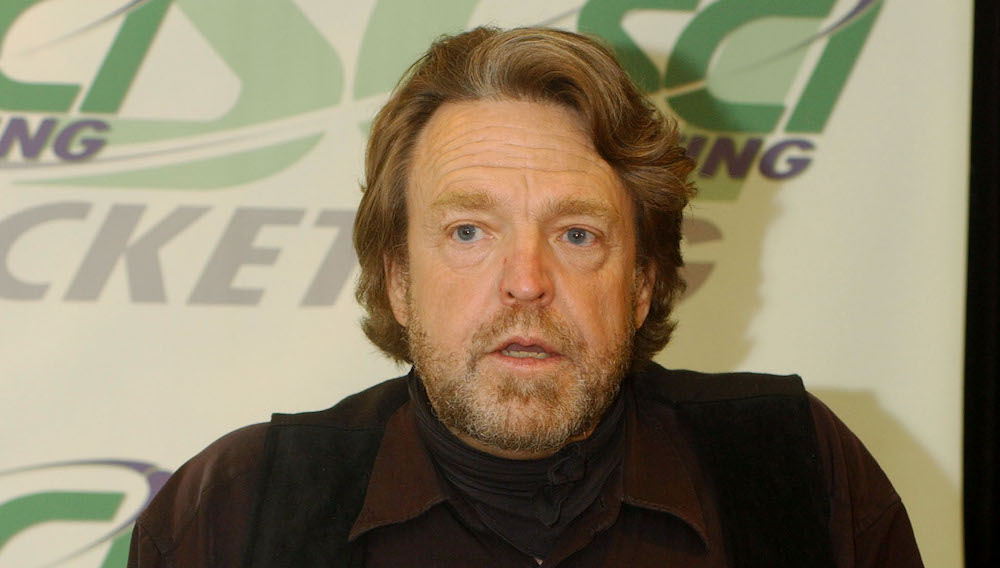John Perry Barlow died in his sleep this week, at 70 years old. As a music fan, you might know him as a lyricist for the Grateful Dead. He was a longtime friend of Bob Weir, one of the band’s two guitarists and lead singers, with whom he collaborated on beloved songs like “Estimated Prophet,” “Black Throated Wind,” and “Mexicali Blues.” As a user of the internet and a reader of journalism, you’ve likely been impacted by his pioneering work as co-founder of the Electronic Frontier Foundation and the Freedom of the Press Foundation, even if you’re not familiar with his name. Hs cause of death has not been reported, but he’d been in poor health since a heart attack in 2015.
Born and raised on a Wyoming cattle ranch, with a Republican state legislator for a father, Barlow carried a frontier mentality with him all his life. He was a strong believer in individual liberty, which led him both into the counterculture of the ‘60s and ‘70s, where he developed a friendship with the psychedelic drug pioneer Timothy Leary in addition to his association with the Dead, and into a stint on the 1978 campaign staff of a young prospective congressman from Barlow’s home state named Dick Cheney. Barlow’s friendship with Weir predated the Dead, back to their days as students at the same Colorado Springs prep school, and his conception of the American West as a wild utopia proved to be an important aspect of the band’s sensibility. “John had a way of taking life’s most difficult things and framing them as challenges, therefore adventures – by their nature awakening and maybe even fun,” Weir wrote in a tribute Wednesday evening. “He was to be admired for that, even emulated.”
Later, Barlow applied his libertarianism to advocacy for the independence of the internet. He co-founded the Electronic Frontier Foundation in 1990, when the commercial web was in its relative infancy, with the aim of defending civil liberties online. The organization went on to score several key legal victories for file sharing, online privacy, and fair use of copyrighted material. He was a star contributor to Wired in the early days of the magazine, and in 2012 co-founded the Freedom of the Press Foundation, which provides legal and institutional assistance to journalistic organizations. This week, the FoPF announced an effort to preserve the archives of Gawker, which are in danger of eradication after the site was sued into bankruptcy by Hulk Hogan with backing from the billionaire PayPal cofounder Peter Thiel.

Also Read
The Best Boxed Sets Of 2023
In 1996, Barlow penned a document with a portentous title: “Declaration of Independence of Cyberspace,” which asserted that the internet was “the new home of Mind,” and that world governments “have no sovereignty where we gather.” He essentially viewed the internet as a digital extension of the untamed landscapes of his childhood, and it’s difficult to overstate the influence of this vision on the web’s development. Among Barlow’s many acolytes was Aaron Swartz, the late internet activist who helped lead the popular resistance to the restrictive anti-piracy bills known as SOPA and PIPA in 2012, who cited witnessing a 1996 Barlow talk about internet independence as a key moment in his intellectual development. On some level, we also have Barlow to thank for uglier aspects of contemporary online life: when companies like Twitter and Reddit seem to condone harassment and bigotry in the name of anonymity and free speech, they are darkly echoing his ideals, as are businesses like Airbnb and Uber when they skirt local laws with the defense that the rules apply differently to companies that exist online. The Trump-loving digital swamp of 4chan is likewise emblematic of an internet that “does not lie within your borders,” which “grows itself through our collective actions,” as Barlow wrote in the Declaration.
As Wired pointed out on the 20th anniversary of that document, in a 2013 speech, Google’s general counsel specifically attributed the “free flow of information and ideas…innovation and creativity” across the internet to Barlow’s philosophy. He also called the Declaration outdated, because the internet “is not a separate entity from the real world; it is the real world, and you’d expect behavior online to be regulated in much the same way as online behavior, with protections against abuse and harm to others.” It is a testament to the encompassing nature of Barlow’s influence on the tech world that Thiel—whose corporate libertarianism was called out as distinctly “Barlovian” in a 2015 Washington Post article—would be countered in his efforts to obliterate Gawker by the FoPF, an organization that Barlow helped to create.
In many ways, the Bay Area of the Grateful Dead and the Acid Tests couldn’t be more different from today’s global center of the internet economy, with its Fortune 500 companies and outsourced content moderators. But there is a thread of individualism and willingness to envision new realities—embodied by men like Barlow and the Barnumesque Whole Earth Catalog founder Stewart Brand—that connects the idealistic communities of the ‘60s and the cacophonic social networks of today. By the accounts of those who knew him, Barlow was a singularly compassionate and open-minded man. When he wrote the Declaration, he certainly didn’t have racist trolls in mind. “We are creating a world that all may enter without privilege or prejudice accorded by race, economic power, military force, or station of birth,” goes one line. But it’s impossible to reckon with his legacy without acknowledging the full experience of using the internet today, both good and bad.
In 1995, one year before writing the Declaration, Barlow sat for a freewheeling interview with the eminent feminist and leftist social critic bell hooks, with whom he had struck up a friendship despite their obvious ideological differences, based partly on their shared interest in Buddhism. He was cautiously optimistic about his hopes for the web. He railed against the way that people had been “separated by information,” and argued that television encouraged us to experience reality through a destructive “mediating and separating agency.” If he recognized the internet’s potential to exacerbate these effects at the time, he did not explicitly acknowledge it. He told hooks that he wanted “a cyberspace where there’s room for the breath and the spirit,” and she said that she had not been able to find such fullfilment online. “Well, I haven’t either,” he answered. “The central question in my life at the moment is whether or not it’s possible to have it there. That’s what I’m really trying to figure out.”




